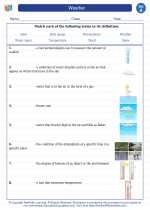Digestion
Digestion is the process by which food is broken down into smaller, more easily absorbed components. This process involves both mechanical and chemical processes that occur in the digestive system.
Overview of the Digestive System
The digestive system is composed of several organs that work together to break down food and absorb nutrients. These organs include the mouth, esophagus, stomach, small intestine, and large intestine.
Mechanical Digestion
Mechanical digestion involves the physical breakdown of food into smaller pieces. This begins in the mouth, where food is chewed and mixed with saliva to form a bolus. The bolus is then swallowed and moves down the esophagus to the stomach, where it is further broken down by muscular contractions.
Chemical Digestion
Chemical digestion involves the breakdown of food by enzymes and acids. In the stomach, gastric juices containing hydrochloric acid and pepsin break down proteins. In the small intestine, bile from the liver and enzymes from the pancreas further break down fats, carbohydrates, and proteins into their basic building blocks.
Absorption
Once food is broken down into its basic components, these nutrients are absorbed into the bloodstream through the walls of the small intestine. The nutrients are then transported to cells throughout the body to provide energy and support various bodily functions.
Study Guide
- What is digestion?
- List the organs involved in the digestive system.
- What is mechanical digestion and where does it begin?
- Describe chemical digestion and the role of enzymes in the process.
- Where does absorption of nutrients take place?
- Explain the journey of food from the mouth to the small intestine.
◂Science Worksheets and Study Guides First Grade. Weather
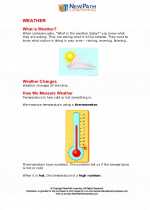
 Activity Lesson
Activity Lesson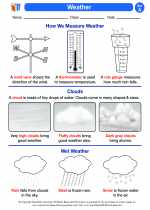
 Worksheet/Answer key
Worksheet/Answer key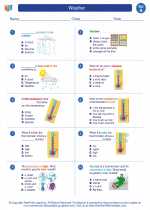
 Worksheet/Answer key
Worksheet/Answer key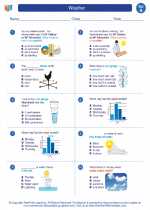
 Worksheet/Answer key
Worksheet/Answer key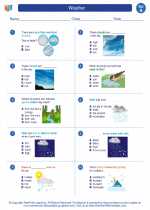
 Worksheet/Answer key
Worksheet/Answer key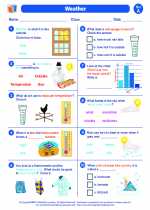
 Vocabulary/Answer key
Vocabulary/Answer key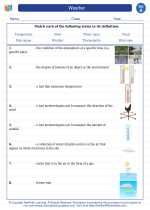
 Vocabulary/Answer key
Vocabulary/Answer key